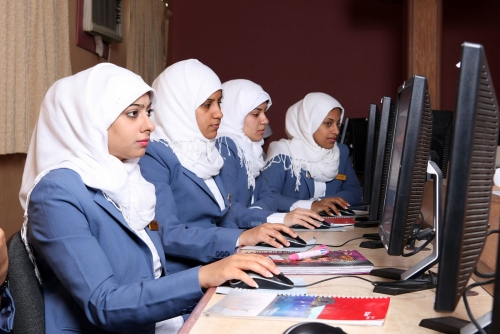'Bahrain is the emerging leader in tech diversity’
TDT | Manama
The Daily Tribune – www.newsofbahrain.com
Staff Reporter
Bahrain has emerged a leader in tech diversity, according to the World Economic Forum (WEF). Women comprise 42 per cent of those who enrolled in Science, Technology, Engineering and Mathematics (STEM) degrees in the last academic year, a rate that significantly outperforms countries such as the US, the forum said.
“Around one in five startup founders in the Kingdom are women, and so are almost a third of the broader ICT workforce, which is considerably higher than the global average,” it observed.
“When Citi decided to open their new global Tech Hub in Bahrain, they were drawn in part by the opportunity to improve diversity. Bahrain could showcase a healthy pipeline of female tech graduates. Women went on to comprise 24 per cent of the coders they hired, significantly outperforming the average of other Citi tech hubs around the world,” a report by the WEF said.
According to the World Bank’s Human Capital Index 2020, Bahrain is in the top five countries globally for girls outperforming boys in learning outcomes, with boys traditionally drawn more towards technical and vocational education.
“Their strong performance in secondary school means girls are more willing to consider continuing their studies in STEM subjects at a degree level. Nonetheless, it requires collective efforts from the government and the education sector to capitalise on that willingness by encouraging more girls to enroll in STEM courses,” the forum report observed.
“The high figure for female founders is significant here, as it shows that the tech startup ecosystem is such a new field that there are not as many legacy systems and barriers that deter women’s participation as in more traditional sectors.
As all other sectors become more digitised and tech-oriented, from finance to manufacturing to education, we expect that this greater inclusivity and diversity in the tech space will gradually trickle down across the economy.
“Diversity and inclusion in tech are no longer a nice-to-have, but a critical policy that has become an industry standard. This is especially important for data-centric companies working in AI and machine learning, given the potential for algorithms to perpetuate societal biases embedded in their training data – the more diverse the coding teams, the better the chance of noticing and avoiding any problems.
“More broadly, diversity in the workplace is critical for any company to understand its customer base, and improves the productivity of the economy overall: according to research in the US, a 10 per cent increase in women’s participation in the workforce is associated with a 5pc increase in wages for everyone.
Initiatives in the Kingdom include the Women in FinTech network, a joint initiative of government and industry, and Standard Chartered Bank’s Women in Tech programme, which encourages early-stage startups with training, a demo day, and incubation for winners at Bahrain FinTech Bay.
However, the report says that women still face obstacles – especially when it comes to climbing the career ladder. “Women comprise only 21 per cent of workers who earn more than BD1,500 per month.
“Both the authorities and industry have a role to play in creating policies to ensure that women and men get equal pay for equal work and introduce more flexible policies that enable better work-life balance.” The World Economic Forum (WEF) is an international non-governmental and lobbying organisation based in Cologny, canton of Geneva, Switzerland.
Related Posts

